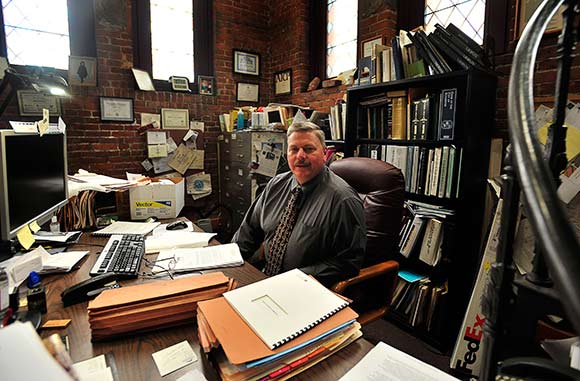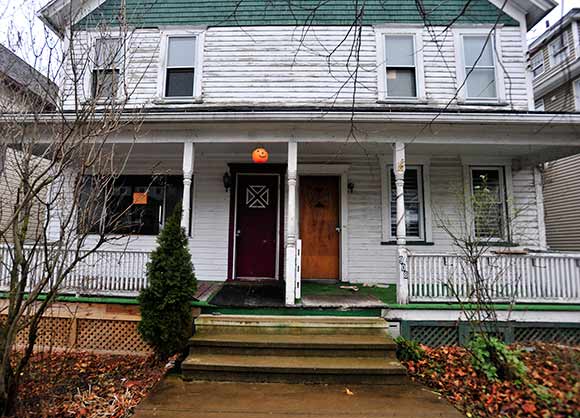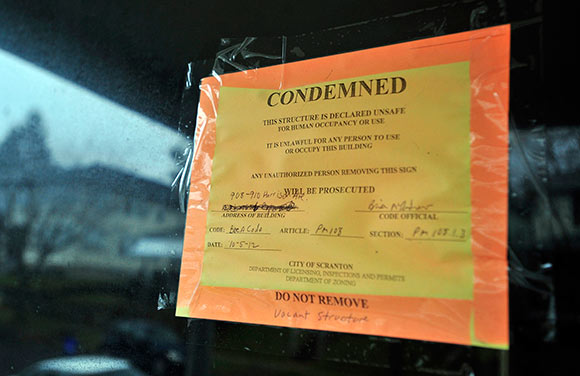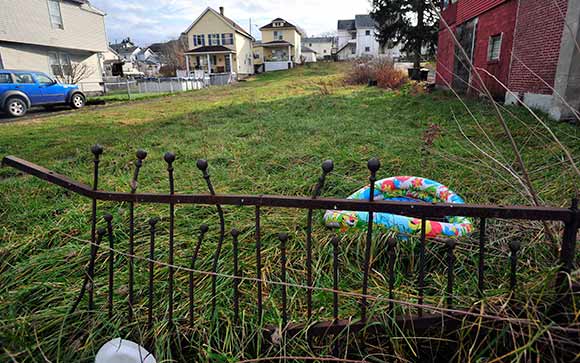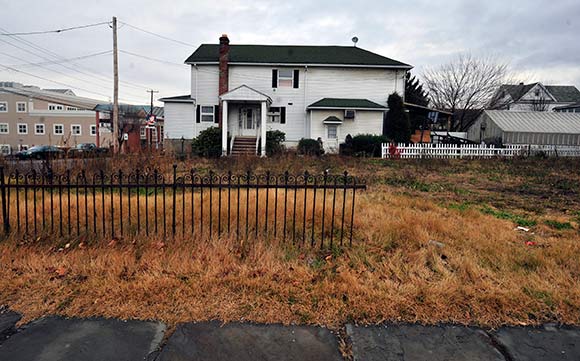In Pennsylvania, a strong property rights state, many local governments struggle to use disjointed and old laws and agencies to cope with vacant and abandoned properties.
A new law signed Oct. 24, however, allows municipalities to create land banks — public corporations that would consolidate and simplify many of the steps to acquire, rehabilitate, and return abandoned properties to the market — thus potentially saving local governments much money and generating new revenue from property taxes.
The Cost of Vacancy
Vacant properties can drain a surprising amount of money from local economies. According to a recent Government Accountability Office report, cities spend anywhere from $25 a year to mow the lawn of a vacant property to several hundred dollars to board one up and several thousand dollars to tear one down. Detroit, for instance, where nearly one in four homes is vacant, spent $20 million just on demolitions from May 2009 to November 2011.
Vacant or abandoned properties also cost municipalities lost revenue. Owners of vacant properties are often delinquent on property taxes, and vacant buildings also drive down the value of nearby properties by $10,000 to $15,000 on average, which further reduces revenue from local property taxes. Yet even as revenue decreases, municipalities continue to provide police, fire protection, and other services to vacant buildings, which tend to attract crime and other problems.
In Pennsylvania, as elsewhere, the number of vacant or abandoned properties can be difficult to measure. The US Census counts vacant houses, whether abandoned, unoccupied for sale or for rent, or only seasonally used, such as vacation homes. Subtracting seasonally used homes, total vacancies in the Commonwealth increased 16% from 2000 to 2010, to about 385,000 homes. Commercial and other properties, although not counted directly, likely saw a similar increase. Most such vacant properties won't immediately become blight, but some will, leading to further long-term costs.
By one reckoning, the city of Philadelphia alone had 40,000 vacant properties in 2010. These properties cost the city $3.6 billion annually in lost property values, $20 million in maintenance, and another $2 million in delinquent taxes. If all these properties were rehabilitated and sold, not only would the city stop losing this money, but it would also stand to gain more than $35 million in tax revenues over five years.
Fititngly, Philly is closest to getting land banking in motion, with Mayor Michael Nutter working to establish a land bank within the philadelphia Housing Development Corporation.
Smoothing the Process
Despite the benefits of returning a vacant property to a productive use, the process is not always easy. Elizabeth Hersh, Executive Director of the Housing Alliance of Pennsylvania, says, “Right now, it's nobody's job to assemble, inventory, clear titles, and market abandoned property. It gets done in a disjointed way, to the extent it's done at all.” The main two laws for dealing with abandoned or blighted property are a redevelopment law from 1953 and a tax sale law from 1923–“antiquated rules,” Hersh notes, that are geographically limited, didn't foresee people walking away from properties, and didn't have a way to market properties to return them to productive uses.
Land banks, pioneered in Michigan and other distressed areas, overcome these problems by simplifying the reclamation of vacant property. The Pennsylvania law allows municipalities with more than 10,000 residents, or multiple municipalities that join together to meet this threshold, to form land banks. These banks are public bodies that can acquire, receive, rehabilitate, and dispose of property. They do not themselves have the power of eminent domain, but counties or other entities with such power can transfer land to the land bank. The land bank then becomes the central clearing house to revitalize properties, from clearing titles to re-sale.
This centralized “retail function,” Hersh says, helps “make properties more accessible and available to all,” because land banks can actively advertise properties and people know to look there for properties and answers about them, such as necessary environmental remediation.
Although scores of legislators co-sponsored the land bank legislation and it passed with little notice, it wasn't an overnight success. Hersh explains that the Housing Alliance first brought the concept of land banking to the legislature about six years ago, but “state law doesn't happen in Harrisburg, it happens at the local level.” The Housing Alliance, Allegheny Conference on Community Development, and others, connected national experts with local stakeholders to educate people about land banks and build support. Once the bill passed, the outreach continued: the Housing Alliance conducted a Blight Summit on Dec. 3 to explain the law and other tools for revitalizing properties.
Different Approaches
Land banks, however, may not be equally useful to all municipalities. Scranton’s city planner Don King says, “In a city like Philadelphia, where there are thousands of vacant properties, it could make life easier. For us, I don’t know.” The city only deals with a few vacant properties annually, which may not merit the time and money to set up a land bank to replace or supplement the city’s current Vacant Property Review Committee. Many of the lots are also small, making them attractive mainly to neighbors who want to buy the property in order to extend their own yards. Land banks may expedite clearing liens and back taxes, King agrees, but “it’s still a fair bit of work to take the property over. In the long run, it’s not much different from what we’re already doing.”
Nonetheless, Hersh is optimistic that land banks will provide necessary flexibility to innovate. “Once you create local tools, people use them in ways that may not have been foreseen.” She says some people are wondering if land banks could get property back on the market after Marcellus shale drilling, and she points to the conversion of industrial sites in Beaver County to an ethane cracking plant as an example of reclaiming land, a finite resource. “Vacant property is an urban problem, a rural problem, a suburban problem.”
Pennsylvania is an old state, Hersh adds, with new problems.
But at least now the options for tackling those problems will be new, too.
MARK MEIER is a writer, independent consultant, and part-time professor who lives in Dunmore and plants butterfly gardens in Scranton (which is his backyard). Send feedback here.

